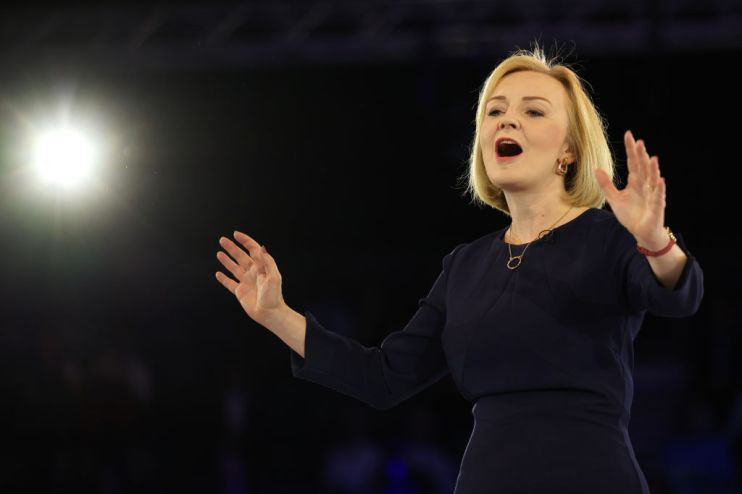Please, end the political pass the parcel and build up our energy infrastructure

Today the Conservative Party announces its new leader, drawing the curtain down on three years of Boris Johnson’s inimitable premiership. It is the third internal change of leader in six years, and we might hope as a nation that we are now given a little respite.
Choosing a lowlight of the campaign is not easy. Was it Rishi Sunak asking Liz Truss which was more embarrassing, having been a Liberal Democrat or a Remainer? Or was it Rehman Chishti deciding he was papabile, only to discover that many of his colleagues barely knew who he was? A late entrant was the outgoing PM’s speech in Suffolk last week in which he lambasted his Labour predecessors for inaction on developing nuclear power: “Thanks a bunch, Tony, and thanks a bunch, Gordon.” Demosthenes would have been envious.
Johnson’s typically crass remarks were important, however, because they capture a tendency in recent political discourse of emphasising the blame game. He described a “paralysis” in nuclear energy since 1995, seemingly happy to ignore the fact that Conservatives have been in power for 14 of those 27 years and he himself has been prime minister for three. What was important was a decision in the dying days of his premiership to invest heavily (to the tune of £700m) in a new nuclear plant, Sizewell C.
To be daringly retro and quote David Cameron (remember him?), we can’t go on like this. Economists and business leaders across the political spectrum accept that investment in critical national infrastructure is a key part of increasing our prosperity and fuelling the recovery from the pandemic. Yet again and again the political class edges fitfully towards decisions amid delay and confusion. The results are inevitable: overrun and overspend.
It is not just a lack of commitment to energy generation. Think of transport: HS2, the high speed rail network which will open up capacity on hard-pressed routes and spread economic development outwards from the capital. It was supposed to cost around £31bn in 2010; by 2015 that had risen to £56bn (including rolling stock); and a 2019 review put the figure at £87bn. One reason has undoubtedly been a constantly changing specification and route. The leg from Birmingham to Leeds/York has been dropped, as has a link to the West Coast Main Line, and there is a diversion in the Nottingham area.
You don’t need to be a transport guru to see that this kind of indecision is a recipe for expensive delay. Nor is it a matter of great spans of time: HS2 was reviewed in 2019 and a commitment to the full plan made by Boris Johnson in February 2020. Eighteen months later, the Integrated Rail Plan of a government headed by (checks notes) Boris Johnson scrapped many of the more ambitious parts of the project.
The pattern is now entrenched: Decisions are made and then heavily amended or even rescinded; and then the change in course is reduced to a political parcel-bomb, passed around frantically until it explodes in the hands of the unlucky holder. Short-term thinking, inadequate planning, milquetoast commitment: the hallmarks of infrastructure planning in the UK.
If only there were some strategic body able to take a measured view of the UK’s requirements and provide policy to fulfill them! Something like the National Infrastructure Commission, perhaps, set up in 2015 by George Osborne. Its first chair was transport geek Lord Adonis and it has produced a number of reports over the past seven years on subjects like resilience and freight transport. It has not, however, produced a revolution on Whitehall planning or budgeting. You may lead a minister to advice but you cannot make him think.
We have the tools and the oversight, but somehow we lack the will to use their powers to create efficient and effective planning. God knows, we have had enough Year Zeros, but there is, perhaps, a final opportunity for the new prime minister. We are facing a cost of living crisis which is partly due to inadequate energy generation. We have a failing transport network and a capital served by an organisation which cannot make long-term financial plans.
The new prime minister should set out three or four clear priorities for infrastructure (energy, health, housing and rail would seem like a good start). Set ambitious but realistic goals, knowing that these will extend beyond the next election. Make spending commitments so unambiguous that to resile would be electoral suicide. And get the job done.